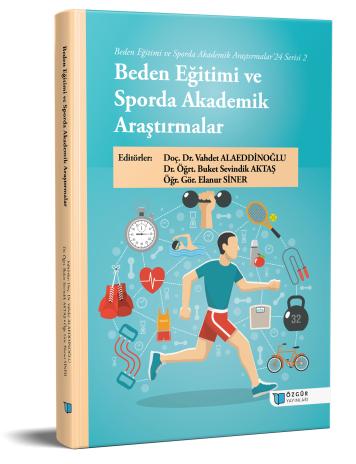
Sport for All: Promoting Mobility and Active Living in Society
Chapter from the book:
Alaeddinoğlu,
V.
&
Aktaş,
B.
S.
&
Siren,
E.
(eds.)
2024.
Academic Research in Physical Education and Sport.
Synopsis
This study examines strategies, policies, and practices aimed at promoting mobility and active living within the framework of the "Sport for All" concept. Approaches that ensure the participation of individuals regardless of age, gender, physical ability, economic status, or social standing are explored in terms of their individual and societal benefits.
The study highlights the positive impacts of sport on individuals, such as improved physical and psychological health, social cohesion, self-confidence, and quality of life. At the societal level, sport is shown to strengthen social solidarity, support equality and inclusivity, and reduce chronic diseases while potentially lowering public health expenditures.
Strategies to increase mobility include investments in accessible infrastructure like sports parks, bike paths, and walking tracks, as well as community-oriented events and programs targeting disadvantaged groups. Specific initiatives for women, the elderly, persons with disabilities, refugees, and low-income groups are analyzed, and the societal impacts of enhanced accessibility are discussed.
The role of technology in sports and active living is addressed through digital fitness applications, wearable devices, online communities, and data-driven approaches that support individual sports goals. The influence of technological tools in fostering sports habits and increasing mobility within society is evaluated.
In terms of national and international policies, the study reviews the World Health Organization's (WHO) physical activity guidelines, initiatives led by the Turkish Ministry of Youth and Sports through the Sport for All Federation, and lessons learned from successful programs in countries such as Canada, Sweden, and Finland.
Finally, the future of sustainable active living is discussed, focusing on environmental sustainability, circular economy practices, and recycling in sports, as well as the establishment of sports culture in future urban settings. It is concluded that sport serves as a transformative tool contributing to sustainable development goals by fostering positive impacts on both individuals and the planet.

